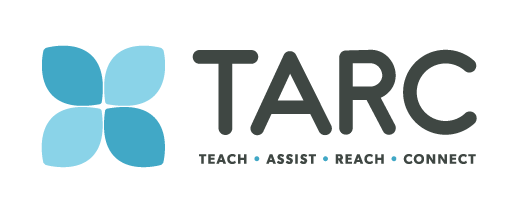Early Intervention
“A SPECIAL CHILD
You weren’t like other children,
And we were well aware,
You’d need a caring family,
With love enough to share.
And you were sent to us,
And much to our surprise,
You haven’t been a challenge,
But a blessing in disguise.
Your winning smiles and laughter,
The pleasures you impart,
Far outweigh your special needs,
And melt the coldest heart.
We’re proud that we’ve been chosen,
To help you learn and grow,
The job that you have brought us,
Is more than you can know.
A precious gift from Heaven,
A treasure from above,
A child who’s taught us many things,
But most of all- “Real Love””
Early intervention serves children birth to three with special needs. Early intervention addresses delays in development with speech, cognition, fine and gross motor skills, behavior, and social/emotional needs.
Early Intervention for ages Birth to Three
At TARC, we offer a program of special instruction.
Early intervention focuses on the child and the family together. Early intervention is home-based. Early intervention may begin at any time between birth and three years of age.
Why Intervene Early?
There are three primary reasons for intervening early with an exceptional child: to enhance the child’s development, to provide support and assistance to the family, and to maximize the child's and family's benefit to society.
The family of a young exceptional child often feels disappointment, social isolation, added stress, frustration, and helplessness. Early intervention can result in parents having improved attitudes about themselves and their child, improved information and skills for teaching their child, and more release time for leisure and employment.
Society reaps maximum benefits with early intervention. The child’s increased developmental and educational gains and decreased dependence upon social institutions, the family's increased ability to cope with the presence of an exceptional child.
Some Benefits of Early Intervention Include:
Families become team members with the professional who will be most involved with their children.
Families learn to enhance the quality of interaction with their child and foster progressive development of many domains.
Families learn to become effective advocates for their children with special needs.
More Information
For more information, please contact Sue Mathes at 985-345-8811 or email us using the form below.


